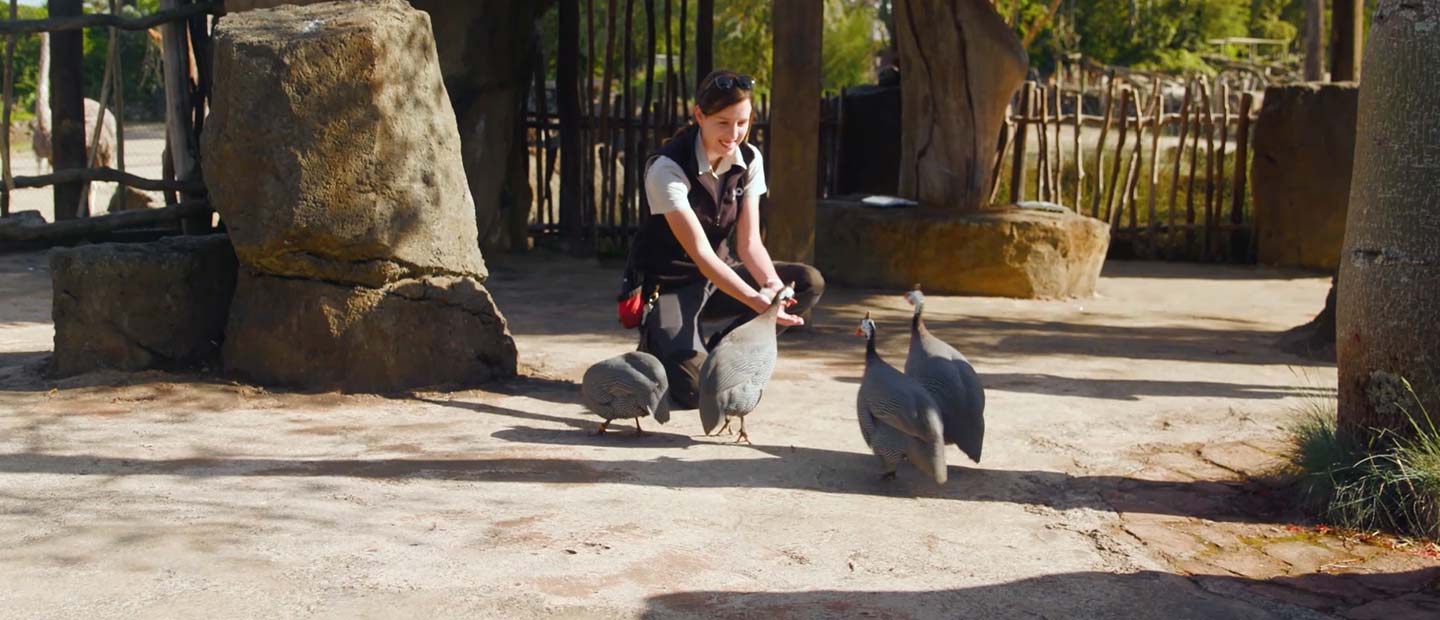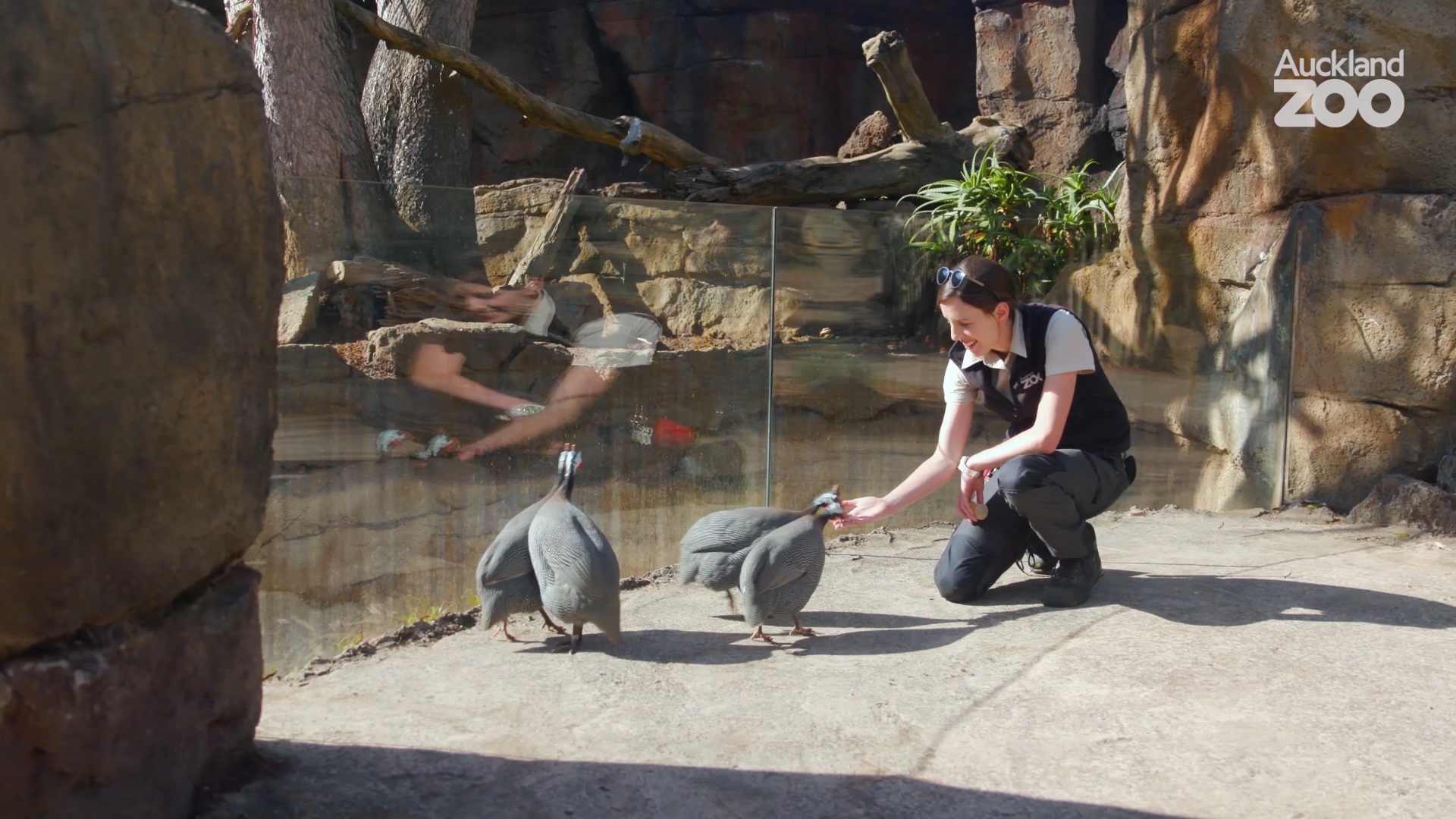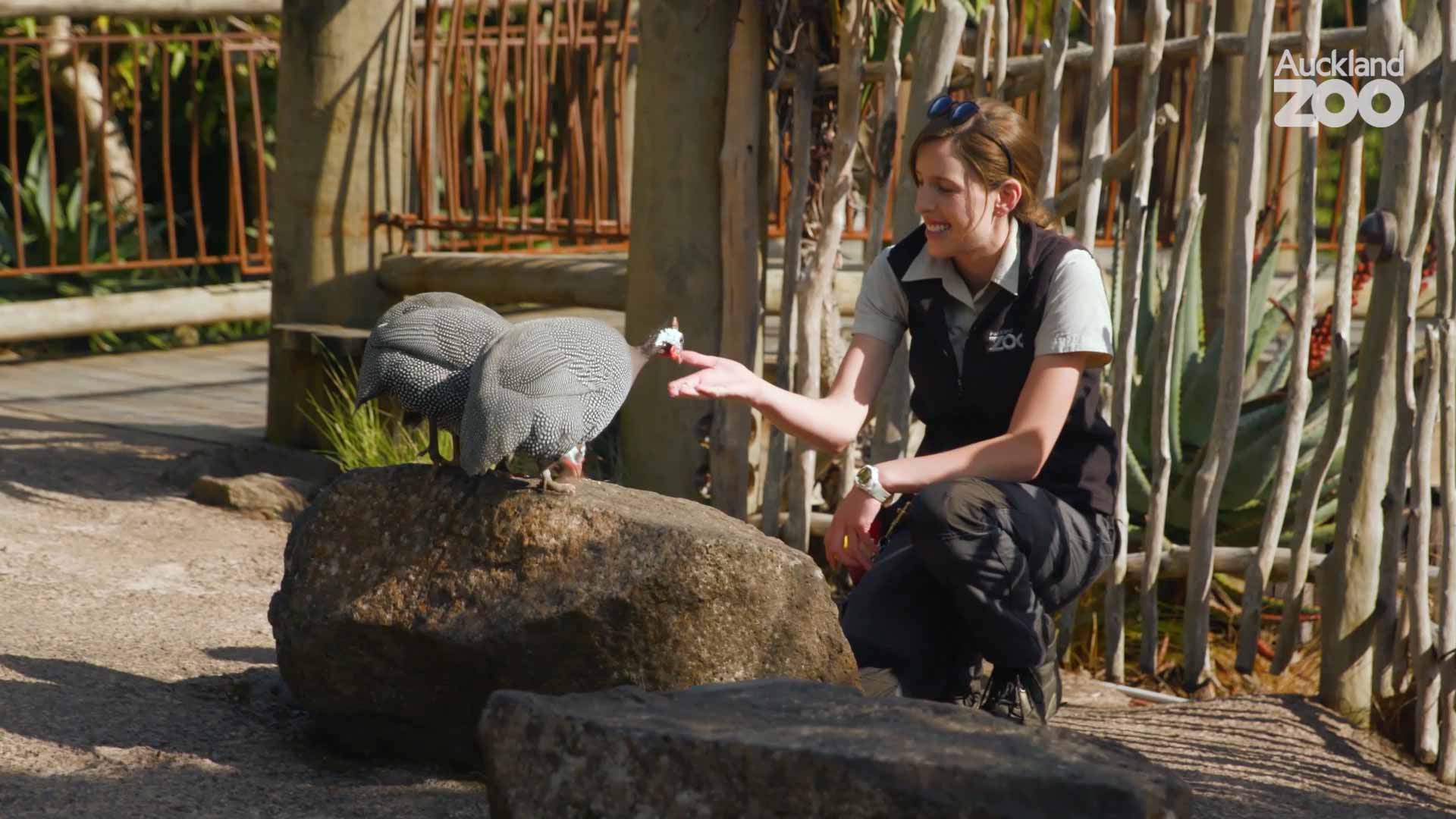An important part of our job at Auckland Zoo is to help people forge a connection with wildlife, there’s even a dedicated part of our Auckland Zoo whānau that focus on fostering these connections – our Animal Experiences team. We believe that for people to make vital changes in their lives that will have a positive impact on a species, that species’ habitat in the wild, and result in essential positive impacts for global issues such as climate change, in many instances people first have to connect with that species, habitat or issue in order to influence positive change.
Guineafowl may not be the first thing that pop into your mind as an ambassador for change, but they have already proven their worth around the zoo as they put smiles on children’s faces, and even give us the opportunity to strike up a conversation with grandparents to grandchildren and everyone in between, to talk about the species, and challenges their habitat faces in the wild.
Shannon is an Animal Experiences Keeper, and part of her role is to come up with ways to engage the public with our animals, ensuring this is both enriching for our animals as well as our visitors. One novel idea, and the first to actually do this in Australasia, was to train our guineafowl to go for walks around the zoo, which is both enriching and exciting for them to explore, and gives our visitors a spectacular close-up look at an animal they otherwise would not see. Guineafowl are a flighty animal, hyper aware of their surroundings, so this was never going to be an easy task! Watch our video as Shannon goes through the entire process, from incubating eggs, to finally having them comfortable to walk around Africa.




